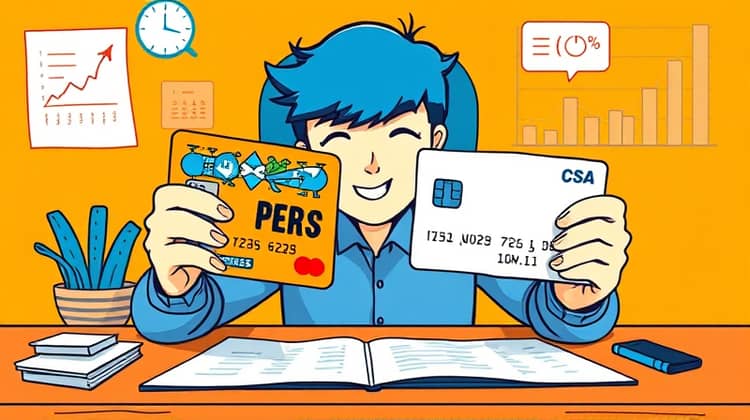Credit Card Upgrade or Downgrade: 5 Essential Tips You Can't Ignore

In today's world, credit cards are a crucial part of managing finances effectively. With an array of options available, it's essential to understand when to upgrade or downgrade your credit card. Whether it's maximizing benefits or reducing costs, making the right choice can greatly influence your financial health.
This article delves into five essential tips to help you make an informed decision on your credit card upgrades or downgrades. By following these guidelines, you'll be better equipped to navigate the often confusing credit card landscape and utilize your cards to their fullest potential.
Understanding the nuances of credit card offerings empowers you to take charge of your financial future. Let’s get started with these tips that you absolutely cannot ignore when considering a change.
1. Assess Your Current Card Benefits

Before considering a new credit card, it's vital to evaluate the benefits that your current card offers. You may find that your existing card meets most of your needs, making a downgrade unnecessary or, conversely, it may lack features that make an upgrade beneficial.
Look beyond just cashback or rewards points; consider aspects like travel insurance, purchase protection, and exclusive access to events. Sometimes, the added benefits of upgrading can significantly enhance your financial life, especially if you travel frequently or make large purchases.
Create a comprehensive list of all benefits tied to your current card. This helps you compare them against other cards you might be considering, leading to a more informed decision.
- Cashback/Retail rewards
- Travel benefits (insurance, lounges, etc.)
- Promotional offers (0% APR, balance transfers)
After evaluating the benefits, you can decide whether an upgrade is worth the switch. Make sure the card you are eyeing offers substantially better features that fit your lifestyle.
2. Evaluate Annual Fees

Annual fees are an essential factor in determining whether to upgrade or downgrade your credit card. High fees can eat into any benefits you may be receiving, especially if you are not utilizing the perks fully.
Break down the costs associated with your current card versus the potential new card. A significant annual fee might only be justified if the benefits clearly outweigh that cost, which you should analyze critically.
- Understand the annual fees associated with your current card.
- Weigh the benefits against the counterparts of your potential new card.
- Consider hidden fees, like foreign transaction fees or fees for late payments.
Being aware of these costs helps you decide if an upgrade makes sense or if downgrading to a card with lower fees is the better option.
3. Consider Credit Limits

Credit limits play a crucial role in how you manage your finances. An upgrade might offer a higher credit limit, which can be beneficial for maintaining a low credit utilization ratio, potentially boosting your credit score.
On the other hand, a downgrade may come with a lower credit limit, potentially increasing your utilization rate. It's essential to consider how these changes can affect your overall financial health and creditworthiness.
- Evaluate how your credit limits compare between your current and potential new cards.
- Consider your spending habits and how credit limits can affect your credit utilization ratio.
- Keep in mind that higher limits can offer more purchasing power but require disciplined usage.
Choosing the right credit limit is fundamental to ensuring that your card aligns with your spending behaviors.
4. Impact on Credit Score

Changing your credit card can impact your credit score in various ways, making it a critical consideration. Each time you apply for a new card, it can result in a hard inquiry on your credit report, which may temporarily lower your credit score.
Moreover, downgrading your credit card could reduce your overall credit limit, thus increasing your credit utilization ratio and further affecting your score negatively. It’s important to anticipate these changes before making any decisions.
- Monitor your credit score before and after making changes.
- Consider how closing an account can affect account age and credit utilization.
- Look into how inquiries may impact your overall score.
Understanding these implications helps you choose a path that aligns with your long-term financial goals.
5. Timing is Everything

Timing your upgrade or downgrade can make a significant difference in your experience with credit cards. Card issuers often run promotions, so being aware of these can help you maximize rewards and minimize costs.
Also, consider your personal financial situation, such as upcoming large purchases or changes in income. Timing your changes to align with your broader financial goals is essential for optimizing your credit card usage.
- Research promotional offers before considering any changes.
- Analyze your financial situation for potential changes.
- Consider making changes at the beginning of a new billing cycle.
Taking the time to assess these factors ensures that you make changes that are well-timed with respect to your financial goals.
Conclusion

In conclusion, upgrading or downgrading your credit card should always be a carefully considered decision. Assessing your current card, understanding fees, credit limits, and the impact on your credit score are all integral to making an informed choice.
Consequently, keeping track of timing and staying informed about market trends can further enrich your credit card management experience.






